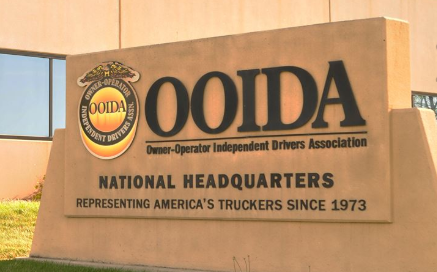Owner-Operator Independent Drivers Association letter to the Department of Commerce on supposed shortage of truck drivers
OOIDA emphasized the critical issue of high turnover in the industry and the need to focus on driver retention
The Owner-Operator Independent Drivers Association (OOIDA) is the largest trade association
representing the views of small-business truckers and professional truck drivers. OOIDA has over
150,000 members located in all fifty states that collectively own and operate more than 240,000
individual heavy-duty trucks. OOIDA’s mission is to promote and protect the interests of its members
on any issues that might impact their economic well-being, working conditions, and the safe operation
of commercial motor vehicles (CMVs) on our nation’s highways.
The International Trade Administration’s Advisory Committee on Supply Chain Competitiveness
recently recommended that the Department of Commerce “take a leadership role to coordinate federal
agencies to immediately address the driver shortage that threatens the effectiveness of the nation’s
critical supply chains.” As the largest trade association representing small-business truckers and
professional truck drivers, our members reject the notion of a mythical driver shortage, especially claims
of one at an “all-time high.”
In reality, evidence from the federal government and industry analysis show that driver turnover is the
problem. For one, the Federal Motor Carrier Safety Administration (FMCSA) estimates that over
400,000 new commercial driver’s licenses are issued every year.
1 On top of that, the U.S. Department of Labor did not find indications of a driver shortage when examining the issue in 2019. Instead, they identified the high turnover experienced by large carriers as one reason for the perception of a shortage.
2 Reporting from representatives of the nation’s largest truck fleets routinely report annual turnover rates
above 90%.3 Clearly, there is no shortage of drivers entering the industry.
For decades, our country’s largest motor carriers and the trade associations that represent them have
perpetuated the myth of a driver shortage to promote policies that maintain the cheapest labor supply
possible. We encourage the Department of Commerce to follow the Department of Transportation’s
(DOT) lead and finally focus on improving driver retention to address supply chain disruption rather
than expanding driver pools. Last month, DOT Secretary Buttigieg along with Department of Labor
Secretary Walsh convened a roundtable with trucking industry representatives to discuss best practices
about prioritizing retention and limiting turnover. They consistently heard from motor carriers, drivers,
safety advocates, labor organizations, and academic researchers about making the profession a more
rewarding, long-term career – there is no shortage of work that must be done in that regard.
A few areas that need urgent attention from federal regulators and lawmakers include increasing truck
parking capacity, providing fair levels and methods of compensation, repealing the exemption that
denies truckers guaranteed overtime pay, better driver training programs, and eliminating excessive
detention time. For instance, a majority of OOIDA members who operate under the 60 hour/7-day rule
and those who operate under the 70 hour/8-day rule spend between 11 and 20 hours each week waiting
to load or unload their truck.4 Additionally, drivers are allocating more and more of their on-duty time
searching for safe parking locations due to capacity shortfalls in every region of the country. Addressing
these inefficiencies will repair supply chain vulnerabilities in a far more sustainable manner than simply
allowing more drivers to enter the industry.
Since the roundtable, DOT leadership and industry stakeholders have continued their discussions about
retention. FMCSA’s Motor Carrier Safety Advisory Committee (MCSAC) is working on formal
recommendations related to the recruitment and retention of drivers. FMCSA’s newly created Driver
Subcommittee will provide MCSAC with specific ideas. Unlike the International Trade Administration’s
Advisory Committee on Supply Chain Competitiveness, the MCSAC Driver Subcommittee is comprised
entirely of trucking industry representatives. We believe the Administration’s Supply Chain Disruptions
Task Force should take this expertise into account when implementing any proposals that will impact
the nation’s professional driver fleet.
OOIDA is eager to work with Executive Agencies on strategies that will help make trucking a more
viable and rewarding career choice for Americans who are prepared to enter the driver workforce. The
Department of Commerce along with the Administration’s Supply Chain Disruptions Task Force must
prioritize resolving the underlying circumstances that have led to excessive churn. Otherwise, we
anticipate turnover rates will remain precariously high or even increase no matter how many new drivers
are eligible to enter the industry. We would welcome any opportunity to further discuss these issues with
you and other Department of Commerce officials at your convenience.
Category: Driver Stuff, Featured, General Update, Management, News, People, Safety











